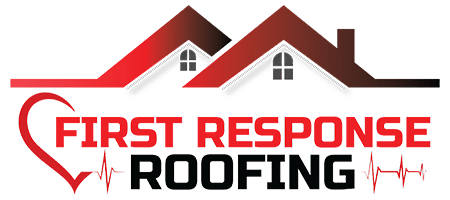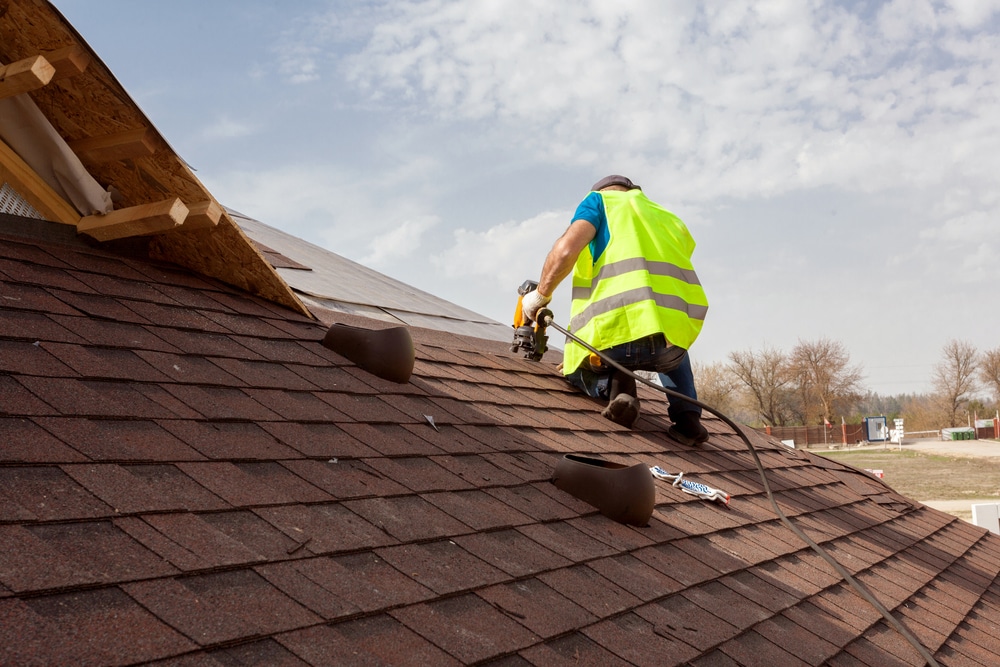Finding the right residential roofer can feel like a daunting task, especially when your home’s well- being hangs in the balance. Navigating through countless options and technical jargon is not always easy, and that’s where we come in – demystifying the process. This blog post sifts through it all, serving as your compass to find an expert roofer that aligns with your specific needs. Packed with insider tips and practical advice, prepare yourself to unlock the secrets of picking the best residential roofer and ensuring a lasting cover over your head. Let’s turn this challenge into a simplified, enjoyable experience! Dive in and discover how to secure top- notch roofing services for your adobe.
Our residential roofing company offers a variety of services to keep your roof in top shape, including repair, replacement, and maintenance. We work with different types of roofing materials such as shingles, tiles, and flat roofs to ensure we meet all our customer’s needs. Our team of trained specialists will assess the condition of your roof and recommend the best solution to fit your budget and preferences. Contact us today to schedule a free consultation!
Insights on Residential Roofers and Their Services
Your home is one of your most significant investments, and ensuring that its roof is in good condition is crucial for the safety and longevity of your property. That’s where residential roofers come into play. These professionals are skilled in all aspects of residential roofing, from installation to maintenance and repairs. They possess the expertise to navigate the complexities of different roofing materials, styles, and structures.
Residential roofers are well-versed in the nuances of various roofing systems, allowing them to assess the condition of your roof accurately. Whether you have a traditional shingle roof or a more intricate tile or metal roof, these experts have the knowledge and experience to address any issue that may arise.
Now that we understand the role and significance of residential roofers, let’s dive into their specific services and how they can benefit homeowners like yourself.
Role and Services of Residential Roofers
Residential roofers have a wide range of roles and provide various services to keep your home’s roof in optimal condition. Here are some key areas where they excel:
1. Roof Inspections: Before embarking on any roofing project, experienced roofers conduct thorough inspections to assess the overall condition of your roof. Through meticulous examination, they identify any underlying issues that require attention.
2. Roof Installation: When it comes to installing a new roof on your home, leaving it in the hands of professionals is essential. Residential roofers have the necessary skills and equipment to ensure proper installation, minimizing future problems like leaks or structural damage.
3. Roof Repairs: From minor leaks to major damages caused by storms or other severe weather conditions, residential roofers are well-equipped to handle all types of repairs. They identify problem areas promptly and implement effective solutions using industry best practices.
4. Roof Maintenance: Regular maintenance is crucial for extending the life span of your roof. Residential roofers offer routine inspections and maintenance services to keep your roof in peak condition, identifying and addressing any issues before they worsen.
5. Roof Replacement: If your roof has reached the end of its life span or has extensive damage that cannot be repaired, residential roofers can guide you through the process of selecting a suitable replacement and perform a seamless installation.
For instance, if you live in an area prone to extreme weather conditions like hurricanes or heavy snowfall, experienced residential roofers will advise you on the best materials and designs to withstand these challenges.
With their expertise and range of services, residential roofers play a vital role in ensuring the integrity and longevity of your home’s roof.
Preferred Material Choices for Residential Roofing
When it comes to residential roofing, choosing the right materials is essential for durability, aesthetics, and long- term value. While there are numerous options available, some preferred material choices stand out among homeowners.
One popular choice for residential roofs is asphalt shingles. They are affordable, easy to install, and come in a variety of colors and styles to suit different architectural designs. Asphalt shingles also provide reliable protection against harsh weather conditions.
Another favored material option is metal roofing. Metal roofs offer exceptional longevity and can withstand extreme weather events such as high winds or heavy rain. They are also energy-efficient, reflecting sunlight and reducing cooling costs during hot summers.
For those seeking a more natural look, cedar shake or shingle roofing is an excellent choice. Cedar roofs offer a rustic appeal and age gracefully over time, blending seamlessly with nature. They provide good insulation and can last for several decades when properly maintained.
Choosing the right material for your residential roof depends on various factors such as climate, budget, style preference, and neighborhood regulations. It’s crucial to consult with professional roofers who can assess your specific needs and guide you towards the ideal material choice that fits your requirements.
Material Types for Roof Repair and Installation
Whether you’re planning a roof repair or a complete installation project, understanding the different material types available is vital for making informed decisions. Each material has its own characteristics and benefits that can impact the functionality and appearance of your roof.
As mentioned earlier, asphalt shingles continue to be a popular choice due to their affordability and versatility. They are relatively low-maintenance and can endure diverse weather conditions. Additionally, they come in various styles such as architectural or 3-tab shingles.
Metal roofs, including steel, aluminum, or copper materials, offer superb durability along with fire resistance properties. These roofs have a long lifespan and require minimal maintenance compared to other options. Moreover, metal roofs come in different styles and finishes providing a modern look to your home.
Tile roofing is another option known for its longevity and aesthetic appeal. Roof tiles made from materials like clay or concrete can withstand extreme temperatures and are resistant to insect damage. They offer a timeless elegance to residential buildings.
It’s worth noting that each material type has its pros and cons, and the suitability may vary depending on factors such as climate, budget, desired appearance, and local regulations.
As you plan your roof repair or installation project, it is advisable to consult with professional roofers who have expertise in working with various materials. They can guide you towards choosing the most appropriate material based on your specific needs and preferences.
When planning a roof repair or installation, it is important to understand the different material types available and how they can impact the functionality and appearance of your roof. Asphalt shingles are popular due to their affordability and versatility, while metal roofs offer superb durability and come in various styles and finishes. Tile roofing is known for its longevity and aesthetic appeal. Each material has its own pros and cons, so it’s advisable to consult with professional roofers who can guide you towards selecting the most appropriate material based on your specific needs, budget, and local regulations.
Indications for Residential Roof Repair Needs
Your roof is a vital component of your home, protecting you and your family from the elements. Over time, wear and tear can lead to the need for repairs. It’s essential to be aware of the indications that your residential roof may require attention. One clear sign is water stains on your ceiling or walls, indicating a potential leak. You might also notice missing or damaged shingles, which can expose your roof to further damage. Other signs could include sagging areas, cracked flashing, or excessive debris in your gutters. If you observe any of these indicators, it’s crucial to consider contacting a professional roofer for an assessment.
Signs That Signal Professional Roof Intervention
While some minor roof issues can be addressed with DIY repairs, there are certain indicators that signify the need for professional intervention. Imagine you notice a small leak in your roof during a rainstorm. You may be tempted to place a bucket underneath and attempt to fix it yourself later. However, if that small leak transforms into multiple leaks or significant water damage, it’s time to seek professional help. Another sign that calls for professional roof intervention is extensive storm damage, such as fallen trees or large branches damaging the roof structure. These situations necessitate the expertise of a skilled roofer to assess the damage accurately and provide appropriate repairs.
Some people might consider taking shortcuts and attempting to fix complex roofing issues themselves, motivated by cost savings. While it’s admirable to be resourceful and independent, roofing is a specialized trade that requires experience and knowledge. DIY repairs might offer temporary solutions but could potentially lead to more significant problems down the line if not done correctly. It’s best to prioritize the long-term health and durability of your roof by relying on professionals who have the necessary skills and tools.
Selecting the Right Residential Roofer
When it comes to your home’s roof, you want nothing but the best. So how do you go about selecting the right residential roofer for the job? The process may seem overwhelming at first, but with a few key considerations in mind, you can make an informed decision.
First and foremost, research is essential. Take the time to gather information about different roofing companies in your area. Look for their qualifications, experience, and reputation within the industry. Reading customer reviews and seeking recommendations from friends or neighbors who have had their roofs repaired or replaced can provide valuable insights as well.
Next, ensure that the residential roofer you choose is licensed, bonded, and insured. This helps protect both you and the contractor in case of any accidents or property damage during the roofing project. It also indicates that they meet specific legal requirements and adhere to industry standards.
For instance, let’s say you come across a roofing company that catches your eye because of their low prices. Upon further investigation, however, you discover they don’t have a valid license or insurance. In such a scenario, it’s crucial to reconsider hiring them since working with an unlicensed or uninsured roofer can leave you exposed to potential liabilities.
Another important factor to consider is expertise in the type of roofing materials you have or wish to install. Different roofing materials come with unique installation requirements and challenges. Ensure that the residential roofer has experience working with your specific type of roof – whether it’s shingle roofing, tile roofing, or flat roofing – to ensure a high-quality and long-lasting result.
Lastly, don’t hesitate to ask for references from past clients. A reputable residential roofer will be more than willing to provide references that demonstrate their track record of satisfied customers. Reach out to these references to inquire about their experience working with the roofer and if they encountered any issues during the project.
By taking these steps, you can confidently select a residential roofer who meets your expectations in terms of professionalism, expertise, and reliability.
Now that we have covered how to select the right residential roofer, let’s shift our focus to an equally important aspect – safety measures during the roofing process.
Safety Measures During the Roofing Process
Roofing projects inherently involve some level of risk due to working at heights and handling heavy materials. As a homeowner, it’s essential to understand the safety measures that reputable residential roofers should employ to protect themselves, their workers, and your property during the roofing process.
One crucial safety measure is ensuring that all personnel involved in the project have received proper training and have the necessary certifications. This includes training on fall protection, safe material handling, and recognizing potential hazards on rooftops. By working with a roofer who prioritizes safety training for their employees, you can have peace of mind knowing that experienced professionals are on-site.
Furthermore, it’s important to confirm that the residential roofer follows proper safety protocols and adheres to industry regulations. This includes using appropriate personal protective equipment (PPE) such as hard hats, harnesses, and non-slip footwear. The presence of safety barriers or warning signs around the work area also indicates a commitment to maintaining a secure work environment.
Additionally, a reliable residential roofer should have liability insurance coverage in case of accidents or property damage during the roofing process. This protects both you as the homeowner and the workers on-site. Don’t hesitate to request proof of insurance before starting any work.
While cost may be an important consideration when selecting a residential roofer, compromising on safety measures should never be an option. Cut-rate contractors may skimp on safety precautions to offer lower prices but doing so puts everyone involved at risk. Remember, investing in the safety of the roofing process ultimately translates to protecting your home, your family, and the workers responsible for the job.
With a focus on safety throughout the roofing process, you can have confidence that your residential roofer is prioritizing the well-being of everyone involved.


